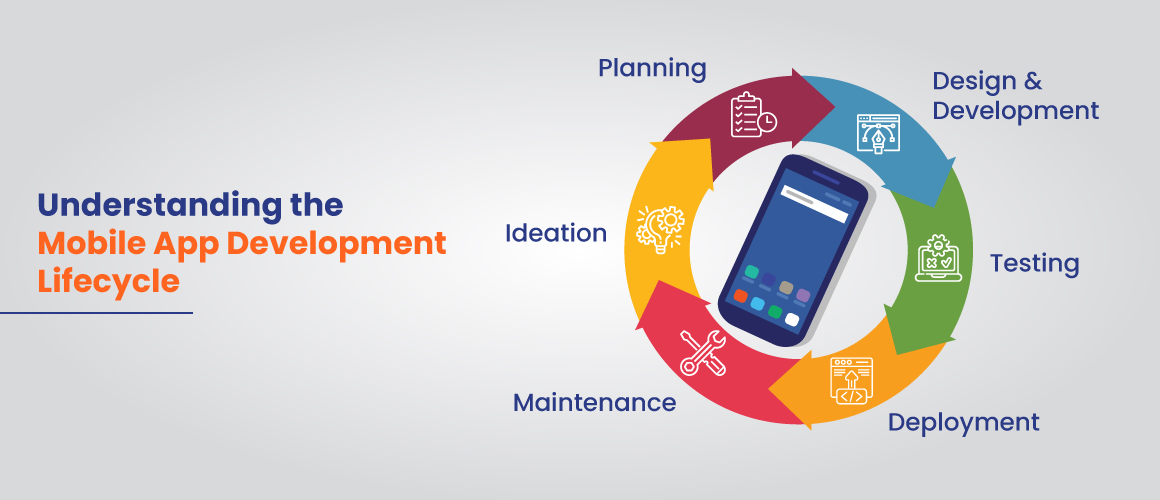The mobile-first age has brought many opportunities for companies related to sales and marketing. As a robust and effective tool, a feature-rich mobile app can help you expand your business manifolds. As per the recent prediction, the sales figure of mobile apps is expected to reach USD 233 billion by 2026. However, as customer expectations and market trends change rapidly, companies need to take a modern app development approach to get a competitive edge.
Modern application development focuses on technological advancements and following industry standards at every stage. Companies can get scalable, secure, and user-friendly applications with the help of modern application development services. In this post, we will see the importance of following industry-standard app development processes and dig deep into such practices that make your app successful.
Let’s start by discussing the role of industry-standard processes in modern app development.
Why Following Industry-Standard Processes is Crucial for Successful App Development
Industry-standard development processes play a vital role in avoiding rejection of the app and enhancing user experiences. Following these processes can give developers a structured framework for creating high-quality and successful applications. This is a reason why industry-standard processes play a vital role in modern app development . Here we give the top 3 reasons why developers should follow industry-standard development practices:
Improved Quality and More Reliability
Best practices in coding and testing of mobile apps can make your app robust and reliable. These practices can minimse bugs, crashes, and performance issues. Developers can easily identify and resolve potential problems by applying standard testing procedures like unit testing and user acceptance testing. It can improve the app’s quality.
Increased App Security and Privacy
One of the important security standards is OWASP (Open Web Application Security Project). Its guidelines can address common security vulnerabilities and protect user data. These security best practices are useful to ensure that mobile apps comply with privacy regulations. It can increase the user’s trust and assist companies to prevent any legal consequences.
Higher Efficiency and Better Collaboration
Standardized processes including agile methodologies, streamlining workflow, and DevOps practices can improve collaboration and increase the efficiency of the team. As developers follow consistent coding standards and documentation they can easily maintain the codebase and meet all the deadlines.
Moreover, following these practices can significantly reduce development costs and duration. It also helps developers maintain consistency and interoperability of apps. Before understanding key industry-standard processes of app development, let’s talk about the mobile app development lifecycle.
Understanding the Mobile App Development Lifecycle

Modern application development process follows the same lifecycle for developing apps. However, its focus remains on quality and performance. The mobile app development lifecycle consists of the following stages:
- Ideation
It is an initial step involving the idea and collecting business needs with market research to validate the app’s feasibility.
- Planning
It consists of making the project’s blueprint containing its scope, business needs, features, and timeline.
- Design & Development
It starts with creating the app’s UI and UX including wireframes. Actual coding takes place at this stage.
- Testing
Rigorous manual and automated testing is essential to identify and fix bugs at an early stage of development.
- Deployment
Developers launch the app on app stores like Google Play Store or Apple App Store during this stage.
- Maintenance
This is a post-launch stage where the app gets maintenance services for fixing bugs and adding new features.
Following this lifecycle can reduce the risk of app failures or rejection at the app store. It also reduces development costs and improves the overall quality of the app.
Key Industry-Standard Processes of Mobile App Development
Following all industry-standard processes is a critical requirement of modern application development services. Here we mention some of the major processes-Market Research & Planning
A reputed modern app development company analyses target audiences and market trends for validating the client’s app idea. In this stage, key activities like defining the app’s purpose, identifying its key features, and making a blueprint of the project remain at the core. This stage enables companies to ensure that their apps are capable of addressing a real need.
UI/UX Design for User-Centric Experience
The User Interface (UI) takes care of the look and UX (User Experience) handles the feel of the app. UX design can create a seamless user journey while UI can ensure a clean layout. Simply put, a mobile app development company focuses on the end user during the designing or wireframing stage of developing customized applications.
Mobile App Development – Frontend & Backend
Modern application development emphasises on this stage the most. On one hand, frontend development focuses on the client side while creating an attractive user interface, and on the other hand, backend development considers the server-sied logic for better functionality. Both these practices can make your app successful.
Testing & Quality Assurance
This is another crucial stage useful for optimising the app’s performance and enhancing its compatibility. Unit testing, integration testing, user acceptance testing, and performance testing are standard testing practices. Automated and advanced testing tools with a CI/CD (Continuous Integration/Continuous Delivery) approach are useful to streamline this process.
Deployment & Launch
Modern application development services can make the app ready to deploy on app stores. Apart from creating app store listings, developers can assist in monitoring the app’s performance post-listing. They can also provide clients with ongoing maintenance services to make an app ready to remain successful for a long time.
All these standard app development practices can give your app an edge over peers making it highly popular over the period.
Conclusion
A feature-rich mobile app needs a lot of investment Modern application development involves many aspects, and therefore, it is imperative to follow industry-standard practices from the initial stage of ideation onwards. Hope this guide will help you get the necessary points about best development practices. It is always better to consult a reputed mobile app development company to know more about modern practices.
Silver Touch Technologies Canada is a leading company known for implementing modern app development practices. Our in-house teams of native and cross-platform app developers follow industry-standard development practices to build a successful application. Contact us to learn more about the ways we take for modern app development in Canada.
FAQs
Both the Apple App Store and Google Play Store have stringent guidelines for publishing an app. These guidelines focus on user safety, privacy, and app functionality while meeting all the technical parameters. App developers can avoid app rejection by adhering to these guidelines.
Mobile app development costs depend on several factors including complexity, number of features, and even platform or OS. Other factors include design, development duration, and hourly rates of developers as per location.
At Silver Touch Technologies Canada, we offer app maintenance services that include regular updates, bug fixes, performance optimization, and security patches. You can consider user feedback and add new features regularly to keep your app relevant for a long time.



